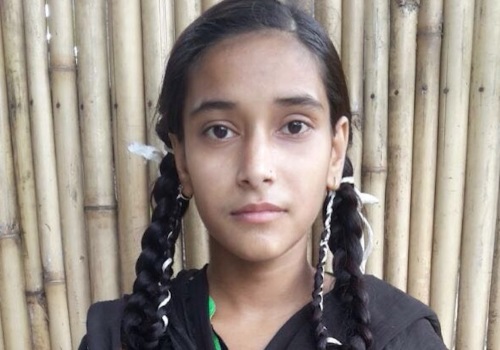Whilst literacy is essential to breaking social barriers, the problems faced by Muslim women in India extend beyond this. A quality, broad education is required to combat the issues of poverty and political marginalization faced by these girls, and it is essential that parents encourage this. It has been observed that after the first few years of the primary education afforded to the Muslim girl, one of two things usually happens. Either the girl is plucked out of formal education by the time she reaches puberty and for all practical purposes lapses into virtual illiteracy, or she continues in school but does climb up the education ladder due to virtual exclusion.
Shehnaz’s story shows how a young girl came looking for that quality support in her pursuit of an education and she found it at Project WHY.
Shehnaz lived in Bihar with her two sisters, her brother and their parents. Unfortunately, when Shehnaz was just two years old, her mother passed away. Her father soon remarried and got a job in a factory in Okhla, not far from where the family lived. Shehnaz was therefore stuck at home with her stepmother, who was abusive, unpleasant and wholly unsupportive.
Shehnaz was keen to attend a government school but, by 2015, she was well behind on the syllabus. Her father did not believe in education for women and refused to pay for any kind of tuition. Rinka, a friend of Shehnaz, told her about Project WHY, which she had been attending since 2013, and Shehnaz was immediately keen on the idea. She approached us on her own, as her father was too busy to help her, and explained that she had missed out on a school career and wanted to catch up. We were happy to take her on, encourage her, and prepare her to return to school.
Through her own determination, Shehnaz has now taken admission to the local government school and continues to attend Project WHY. Her stepmother was not happy with these decisions, but simply sees it as an inconvenience. With no help or support, Shehnaz walks two kilometers to and from school every morning. She spends the evenings doing chores, which she says keeps her father happy. This way, she is able to avoid being taken out of school and forced into marriage.
“I feel comfortable and happy at the Project WHY, this is the only place where I can be myself and express my feelings,” says Shehnaz. Her dream is to complete her studies and become a teacher like the Project WHY resource persons who have helped change her life. She wants to go on to help change the lives of similar children in her community. Every day is a struggle for Shehnaz, but she is slowly catching up with the other children. With her appetite for knowledge, we are convinced that she will be successful.

